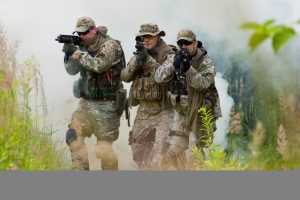
The U.S. Army Garrison Fort A.P. Hill is a versatile military installation in Virginia, USA. Named after Confederate General Ambrose Powell Hill, this base has a long history of supporting our nation’s defense efforts.
It is an essential resource for our armed forces, from rigorous training exercises to readiness operations. Its expansive terrain and diverse facilities make it suitable for various activities, including maneuvers, live-fire drills, logistics support simulations, and more.
Despite being primarily used by the army units, other branches like the Navy or Air Force also benefit from its amenities due to its multi-purpose nature. In addition to regular active-duty personnel training, reserve components often utilize this facility for their weekend drills, too.
Moreover, the base hosts annual events such as “Armed Forces Day,” where civilians can visit and learn about military life first-hand, showcasing that they aren’t just closed-off military zones but essential parts of local communities.
This garrison maintains our country’s defense capabilities while fostering positive relationships with nearby residents.
Do Navy SEALs Train At A.P. Hill
Yes, Navy SEALs do indeed train at Fort A.P. Hill. This military base provides diverse environments and facilities conducive to rigorous training routines needed by elite units like the Navy SEALs.
These specially trained forces often undertake intense drills designed to simulate real-world scenarios they may face during missions. The expansive land area, varied terrain, and realistic live-fire range at A.P. Hill allow for comprehensive preparation – from close-quarters combat simulations to long-range sniper practice.
The fort’s amenities also include aquatic features such as lakes and rivers, ideal for practicing underwater operations, which are essential to the SEALs’ skill set.
In addition, it is not uncommon for joint exercises between different military branches to take place here, fostering inter-service cooperation while allowing each branch to learn from one another’s unique strategies and tactics.
While these sessions are physically and mentally demanding, this type of high-stakes training is critical in honing their skills, ultimately preparing them for any situation they might encounter on duty.
